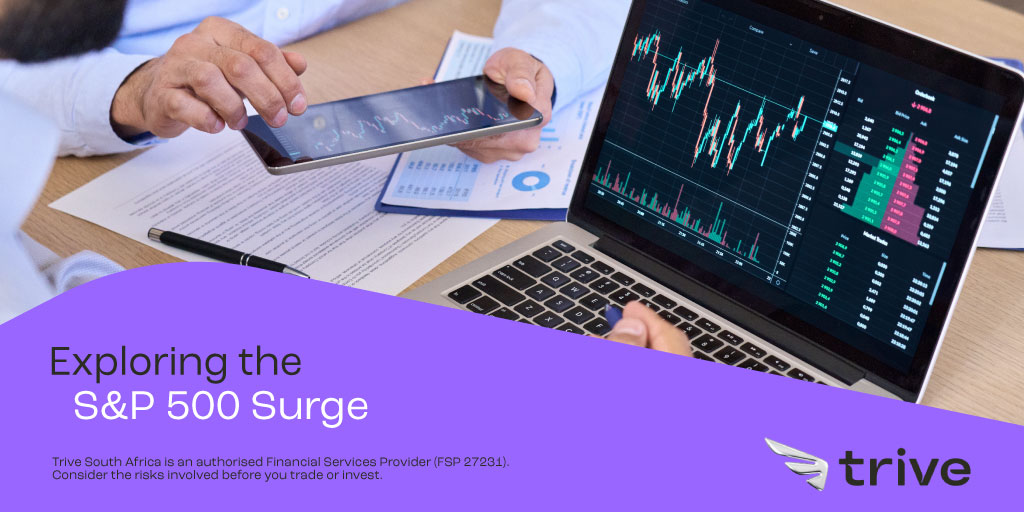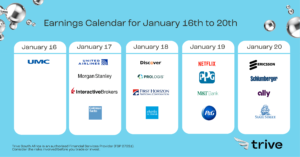
Stepping into the captivating world of Wall Street, the S&P 500 has surged beyond expectations, soaring over 20% from its October low. However, market participants are left to ponder whether the rally can be sustained amidst the hype around artificial intelligence. With the S&P 500 amid an exhilarating new bull market, the streets of finance are buzzing with debate as the question lingers in the air: Is this rally truly the beginning of a triumphant bull run, or merely a tantalizing head fake, teasing us before stocks inevitably take a plunge with fears of a U.S recession on the horizon.
Fuelling the remarkable ascent of the benchmark index are the awe-inspiring mega-cap tech stocks, brimming with potential and powered by the unwavering enthusiasm of Wall Street for the wonders of artificial intelligence. Whilst some analysts are swept away by the promise of artificial intelligence, envisioning a future where productivity skyrockets, profits soar, and stocks continue their ascent to unparalleled heights, others fear another dot-com-style bubble forming within this thriving sector.
However, experts remain on guard amidst the electrifying atmosphere as their concerns echo through the corridors of Wall Street. The haunting spectre of a looming recession casts its shadow, with worrisome signals emanating from various economic indicators. The allure of this new bull market is undeniable, with its dazzling ascent and the promise of AI-driven prosperity. Yet, the ominous clouds of recession gather on the horizon.
Goldman Sachs, the world-renowned investment bank, expressed genuine enthusiasm for the potential of artificial intelligence, suggesting that its widespread adoption by companies could increase productivity and, subsequently, increase earnings. Goldman Sachs has expressed its view that, while the impact of artificial intelligence has primarily been observed in the technology sector, the rally may extend to other industries. Historical data indicates that when market gains have been concentrated in specific areas, it has often led to a greater proportion of winning stocks within the overall S&P 500 index. Despite this, it is essential to know that only a handful of stocks have fuelled the S&P 500’s recent rally.
Furthermore, Goldman Sachs has revised its earlier prediction regarding the likelihood of an economic recession later this year. The bank’s strategists anticipate that the S&P 500 could conclude the year at 4 500 points, indicating a potential increase from current levels and an overall annual gain of approximately 17%.
As the curtain rises on this enthralling chapter of Wall Street’s narrative, the future remains uncertain, teetering between exuberant possibilities and lurking challenges. The convergence of AI’s transformative power, the captivating surge of the S&P 500, and the haunting whispers of a recession weave a complex tapestry of intrigue.
Disclaimer: Trive South Africa (Pty) Ltd, Registration number 2005/011130/07, and an Authorised Financial Services Provider in terms of the Financial Advisory and Intermediary Services Act 2002 (FSP No. 27231). Any analysis/data/opinion contained herein are for informational purposes only and should not be considered advice or a recommendation to invest in any security. The content herein was created using proprietary strategies based on parameters that may include price, time, economic events, liquidity, risk, and macro and cyclical analysis. Securities involve a degree of risk and are volatile instruments. Market and economic conditions are subject to sudden change, which may have a material impact on the outcome of financial instruments and may not be suitable for all investors. When trading or investing in securities or alternative products, the value of the product can increase or decrease meaning your investment can increase or decrease in value. Past performance is not an indication of future performance. Trive South Africa (Pty) Ltd, and its employees assume no liability for any loss or damage (direct, indirect, consequential, or inconsequential) that may be suffered from using or relying on the information contained herein. Please consider the risks involved before you trade or invest.




